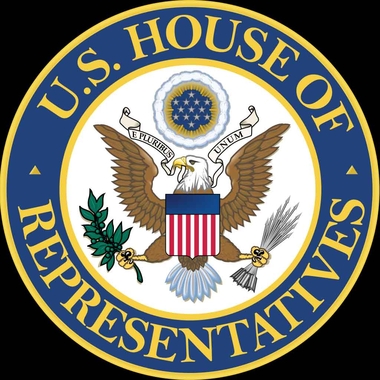House GOP appropriations committee adopts “License to Discriminate” amendment

Following the lead of the Oklahoma and Kansas legislatures, the US House of Representatives Appropriations Committee on Wednesday approved an amendment to an appropriations bill that will allow adoption and foster care agencies to discriminate against LGBT+ parents seeking to give a child a loving home.
The amendment to the Departments of Labor, Health and Human Service and Education appropriations bill would allow agencies to refuse services to any person or family based on the agency’s religious beliefs.
Related:
Passage of adoption bill represents shift in Oklahoma
Kansas legislature approves anti-LGBT+ adoption bill
Discrimination paid for by taxpayers, SB1140 on its way to Gov. Fallin
LGBT+ people are not the only ones affected by the amendment, which gives agencies the right to discrimination based on being LGBT, same-sex couples, interfaith couples, single parents, married couples in which one prospective parent has previously been divorced, or other qualified parents to whom an agency has a religious objection
Rep. Robert Aderholt (R-AL) introduced the amendment, which passed 29-23 with only one Republican representative voting against the measure, as did all of the committees Democrats.
Oklahoma and Kansas passed bills having essentially the same language during the 2018 legislative sessions, and the governors of both states signed the bills into law.
The Human Rights Campaign (HRC) calls these "License to Discriminate" bill. HRC released a statement condemning the action, saying, “The biggest barrier to placing children with families is a lack of qualified prospective parents; having the government give contractors and subcontractors a license to discriminate, thereby limiting the pool of prospective parents for no legitimate reason, is unconscionable and an unacceptable use of taxpayer dollars.”
David Stacy, HRC’s director of government affairs, said, “Any Member of Congress who supports this amendment is clearly stating that it is more important to them to discriminate than it is to find loving homes for children in need. Congress should be focusing on ways to help children in the child welfare system find homes rather than creating needless obstacles for prospective parents, effectively shrinking the pool of qualified folks who want to provide children with a loving home. HRC urges Congress to reject this discriminatory amendment in the final appropriations bill.”
The Democratic National Committee released a statement by DNC LGBTQ Media Director Lucas Acosta, who said, “House Republicans are pandering t0 their far-right base at the expense of LGBTQ people and children in need of a home. Rather than focusing on empowering families or uniting children with their parents, Republicans on the House Appropriations Committee voted to give child welfare agencies a license to discriminate against qualified potential parents.
“Across the country, LGBTQ candidates are running for office and taking a stand against the Trump-GOP agenda, which seeks to roll back the progress we have made. In November, voters will stand together in the face of this bigotry and hate and elect Democrats up and down the ticket.”
Catholic Charities is one of the prime movers of the discriminatory wording. They have a nationwide campaign to avoid being forced to serve LGBT+ persons and same-sex couples. Facing what the US Conference of Catholic Bishops (USCCB) calls “discrimination against Catholic adoption services”, Catholic Charities has shut-down services in states that require them to not discriminate.
The bishops said, in 2006, “Catholic Charities of Boston, which had been one of the nation's oldest adoption agencies, faced a difficult choice: violate its conscience, or close its doors. To be licensed by the state, Catholic Charities of Boston would have to obey state laws barring 'sexual orientation discrimination.' Because marriage had been redefined in Massachusetts, Catholic Charities could not limit its placements to married couples. Catholic leaders asked the state for a religious exemption but were refused. Catholic Charities of Boston was forced to shut down its adoption services.”
They followed that action with closures in several other states.
In the fight against the Oklahoma bill, attempts were made to amend that would have allowed adoption services to refuse service, so long as they did not receive public monies. The amendment failed, and the bill was passed.
Copyright The Gayly – July 12, 2018 @ 1:20 p.m. CDT.





